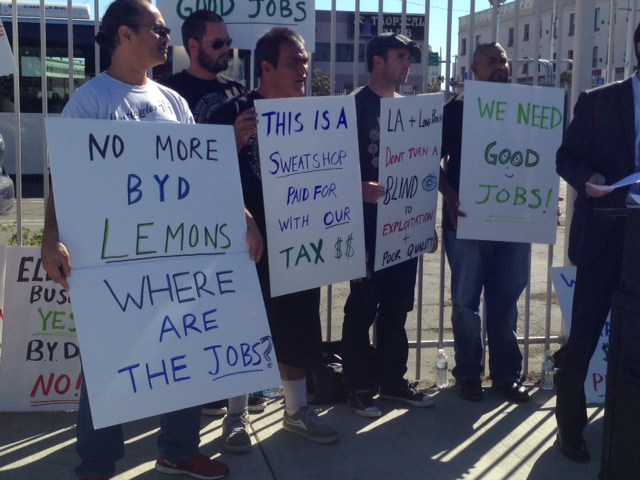On Friday, California became the first state in the nation to mandate zero-emissions transit buses, with the California Air Resources Board (CARB) voting unanimously that by 2029, all new buses need to be carbon-free.
The move will cheer the electric bus industry and some environmentalists. But critics say that as it stands, electric buses can’t do the job California needs from a transit perspective and that unless the technology dramatically improves, CARB just voted to force a slew of lemon vehicles onto the road.

The AP quotes the California Transit Association expressing concerns about electric buses performance, as well as money available for the transition. CTA seems to prefer a deadline of 2040 for fully bus electrified fleets.
That is probably in part because, while the AP cites proponents of all-electric fleets as saying “they have lower maintenance… costs,” that seems to be a dubious proposition given Los Angeles’ experience of buying electric buses from China that keep breaking down. E-bus problems have also surfaced in Albuquerque, New Mexico, where the battery life of buses has proved inadequate to meet transit needs. Earlier this year, the LA Times ran an expose called “Stalls, stops and breakdowns: Problems plague push for electric buses.”
E-buses have cost LA a lot of money. According to the LA Times, over about a decade, Southern California has spent about $330 million on industrial and public transit e-vehicles.
Despite CARB’s unanimous vote, there’s a split among California progressives about the buses. As previously reported by Cal Dirt, progressive and racial justice group The Two Hundred argued in a recent lawsuit that California’s “green energy” policies are effectively racist by driving up housing costs and driving away jobs through onerous regulation:
“California’s climate policies guarantee that housing, transportation and electricity prices will continue to rise, while ‘gateway’ jobs to the middle class for those without college degrees, such as manufacturing and logistics, will continue to locate in other states.”
But that’s not the only racial justice problem with the e-buses. Minorities disproportionately rely on public transportation, and in California– where there are a lot of minorities– that means buses to a large degree. If e-buses don’t work, that is inherently limiting minorities’ ability to get to and from work, earn a living wage, and have access to services that car drivers, or users of natural gas buses, are able to rely on.
In jumping the gun on electric buses, could California actually be incentivizing more people to drive, which directly and massively contributes to global warming which has contributed to the wildfire problem we’ve seen spiral out of control in the Golden State? Maybe.
Despite CARB’s actions, the debate over e-buses will likely continue, for all of these reasons.


